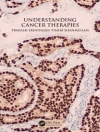This unique and innovative title offers a comprehensive exploration of the intersection of ethics, violence, trauma, and trauma surgery. Underscoring that the causes of violence include a wide range of socioeconomic factors, including poverty and the lack of economic opportunity, and that violence often occurs in impoverished and underserved communities, various authors from a wide range of disciplines outline how intentional violence toward another person is multidimensional and complex. Many of the authors use Chicago as a framework for their chapter discussion, but there are similarities in many urban settings throughout the United States and abroad. Part I of the book, Ethical Issues Related to Violence, includes seven chapters that examine ethical issues related to violence. Each of these chapters discusses a different but intersecting aspect of how violence challenges ethical standards in medicine and health. Part II, Ethical Issues Related to Trauma and Trauma Surgery, offers eight chapters that address various aspects of ethical issues related to trauma and trauma surgery. Part III, Additional Concerns Relating to Violence and Trauma, describe a series of issues relating to violence and trauma, including surgical procedures, psychological distress, and geographic disparities in access to trauma care. Developed by nationally renowned thought leaders in the field, Violence, Trauma, and Trauma Surgery is a major and novel contribution to the clinical literature and will be of great interest to all physicians, clinicians, researchers, social scientists, students, policymakers, hospital administrators and community leaders concerned with understanding and improving outcomes relating to violence, trauma, and trauma surgery.
Cuprins
Chapter 1. Hospital-based Interventions to Reduce Violence and Recidivism: WRAPAROUND Programs.- Chapter 2. The Urban Resilience Network: “TURN” to Faith Leaders and the Faith Community to Address Violence and Trauma.- Chapter 3. A Violent Thread: How Violence Cuts Across the Generations on Chicago’s South Side.- Chapter 4. Engaging People in Behavioral Crisis.- Chapter 5. Violence Is a Contagious Disease: Theory and Practice in the U.S. and Abroad.- Chapter 6. Workplace Violence in Trauma Care.- Chapter 7. Geographic Information Systems in Trauma Research.- Chapter 8. Palliative Care in Trauma: Violence and the Ethic of Care.- Chapter 9. Geriatric Trauma Care.- Chapter 10. Primum Non Nocere: When Is It Our Moral Duty to Do More for Our Trauma Patients in Need?.- Chapter 11. Girls and Trauma: Performing Socio-Surgery through a Gender Responsive Lens.- Chapter 12. An Internist’s View of Trauma Units: From Ancient Warfare to Modern Assistive Technology.- Chapter 13. Empowerment: The Ethical Dilemma.- Chapter 14. The Future of Injury Control Is Precise: Ethical Issues in Violence, Trauma, and Trauma Surgery.- Chapter 15. Ethical Issues in Neurotrauma.- Chapter 16. The Evolution of Transfusion Therapy in Trauma.- Chapter 17. Diagnosis and Management of Penetrating Thoracic Vascular Injury.- Chapter 18. Healing Hurt People – Chicago: Supporting Trauma Recovery in Patients Injured by Violence.- Chapter 19. Clinician Unconscious Bias and Its Impact on Trauma Patients.- Chapter 20. The Creation and Evolution of Acute Care Surgery.- Chapter 21. Trauma Care for Justice-Involved Persons.
Despre autor
Mark Siegler, MD, MACP
Lindy Bergman Distinguished Service Professor of Medicine and Surgery
Founding Director, The Mac Lean Center for Clinical Medical Ethics
Founding Executive Director, The Bucksbaum Institute for Clinical Excellence
The University of Chicago
5841 S. Maryland Avenue, MC 6098
Chicago, IL 60637-1470
USA
[email protected]
Selwyn O. Rogers, Jr., MD, MPH
Professor and Chief of Trauma and Acute Care Surgery Director of the Trauma Center Executive Vice President, Community Health Engagement The University of Chicago Medicine & Biological Sciences
5841 S. Maryland Ave, MC5030, Chicago, IL 60637
[email protected]












